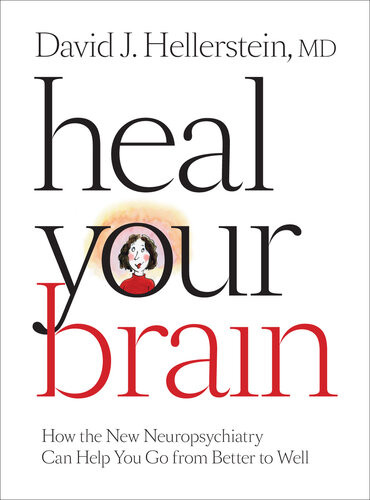

Most ebook files are in PDF format, so you can easily read them using various software such as Foxit Reader or directly on the Google Chrome browser.
Some ebook files are released by publishers in other formats such as .awz, .mobi, .epub, .fb2, etc. You may need to install specific software to read these formats on mobile/PC, such as Calibre.
Please read the tutorial at this link: https://ebookbell.com/faq
We offer FREE conversion to the popular formats you request; however, this may take some time. Therefore, right after payment, please email us, and we will try to provide the service as quickly as possible.
For some exceptional file formats or broken links (if any), please refrain from opening any disputes. Instead, email us first, and we will try to assist within a maximum of 6 hours.
EbookBell Team

4.1
100 reviewsMaybe you are one of the more than 45 million people in the United States who is currently struggling with depression. Maybe anxiety keeps you from truly enjoying your job, your relationships, your life. Maybe every change you have tried to make seems to have failed and you are beginning to feel as if change is simply not possible.
Author David J. Hellerstein uses the term New Neuropsychiatry to refer to a dramatically different approach to help people who have depression and anxiety disorders. Unlike Old Psychiatry, which often focused on early life issues, the New Neuropsychiatry focuses on improving present-day life and on achieving long-term remission of symptoms. Heal Your Brain combines the advances of neuroscience and medicine with the art of the storyteller to show how the New Neuropsychiatry can alter the course of your life.
Dr. Hellerstein, a psychiatrist at Columbia University's College of Physicians and Surgeons, puts this new form of psychiatry to the test. Depression and anxiety disorders damage the brain, but as Dr. Hellerstein explains, the right treatment can change the patterns of brain activity, brain cell connections, and even the brain's anatomy. To illustrate, he relates the stories of people as they travel through various phases of New Neuropsychiatry treatment, from evaluation to therapy to remission, and illustrates how this approach can help you progress through each phase as well.
The book's compelling narrative demonstrates that, in many cases, it is possible to achieve a stable recovery and return to—or even experience for the first time—a life free of crippling anxiety and depression.